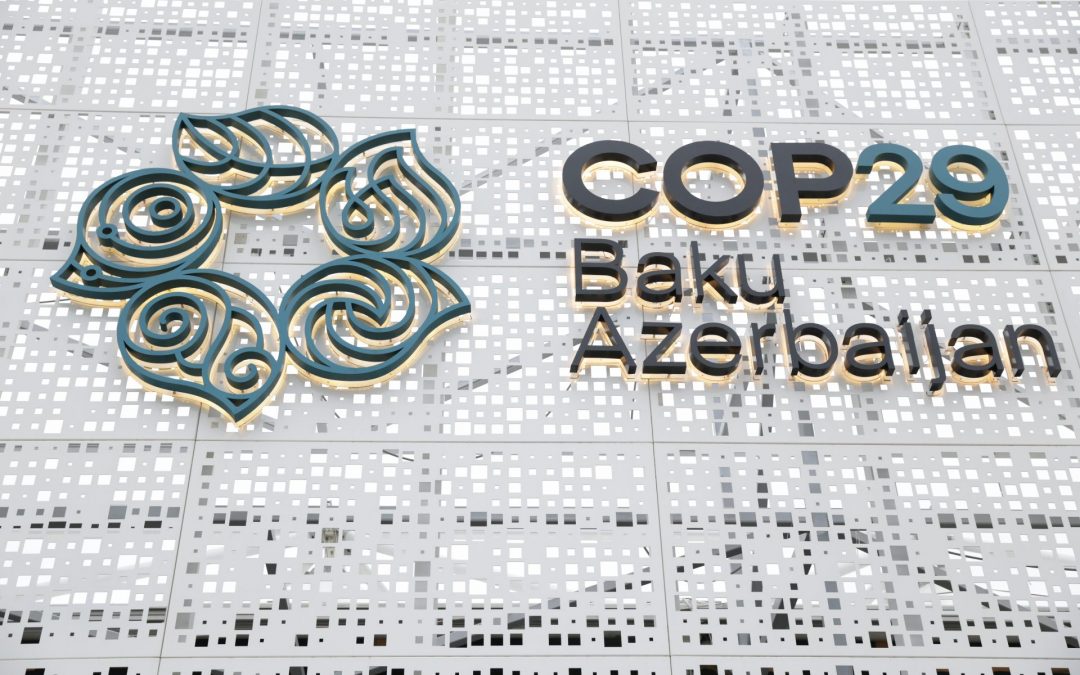BAKU – A panel dedicated to the competitiveness of economies in zero-carbon conditions brought together in the Bulgarian pavilion at the United Nations Climate Change Conference COP29 in Baku, Azerbaijan the European Commissioner for Innovation, Research, Culture, Education and Youth in the European Commission Iliana Ivanova, Deputy Chair of the Intergovernmental Panel on Climate Change (IPCC) Diana Ürge-Vorsatz, Vice President of the European Investment Bank Ambroise Fayolle, First Vice President of the European Bank for Reconstruction and Development Jürgen Rigterink, Bulgarian President Rumen Radev.
To achieve the set climate goals, a sixfold acceleration of the decarbonization of economies is necessary, noted Commissioner Iliana Ivanova and added that this can be achieved through science and innovation.
35% or 93 billion euros from the European program “Horizon Europe” over seven years are directed towards climate research, stated Commissioner Ivanova.
She emphasized the successes of two Bulgarian teams supported by the European program – the first hydrogen valley in Stara Zagora, providing clean hydrogen for buses and public lighting, and the world’s first transport drone, created by the Bulgarian company “Dronamics” with the help of European funding.
IPCC Vice President Diana Ürge-Vorsatz noted that according to the conclusions of the IPCC’s sixth report a 43% reduction in carbon emissions by 2030 is needed if we want to keep global warming below 1.5 degrees Celsius.
Global temperatures will stabilize only if carbon emissions stabilize at net zero, she said. Dozens of cities, companies, and countries already have plans to achieve net zero, and this is of great importance. The choices we make in the coming years will have global implications for the next hundreds, perhaps thousands, of years, said Ürge-Vorsatz.
For the second time, Bulgaria is present at COP with its own pavilion, and this is a clear demonstration of our ambitions to participate in climate diplomacy and to contribute to the fight against climate change, said President Rumen Radev at the opening of the discussion “The Future of Competitiveness at Net Zero.”
Extreme climate events – from floods to forest fires and droughts – are becoming more frequent and devastating. Within just a few months, floods have led to a few casualties in Bosnia and Herzegovina, to hundreds of casualties in Spain. I believe that the way to achieve sustainable solutions in the fight against climate change is through the exchange of experience and knowledge transfer, stated President Radev.
According to him, cooperation between countries is crucial to achieving success in enhancing competitiveness in the context of the transition to a climate-neutral economy. He also noted the importance of the educational system in building a new consumer culture, demand for low-carbon products, and new industry.
To achieve net zero, we need to have a strong European economy based on energy efficiency and innovation, said the Bulgarian President.
Later in the day, in a national statement at the Climate Summit, the Bulgarian head of state stated that Bulgaria is determined not only to be part of initiatives for regional energy cooperation in Central and Eastern Europe, the Balkans, and the Black Sea region but also to strengthen ties between the European Union and countries outside of it that share priorities for climate neutrality, a fair energy transition, energy security, and low-carbon technology innovations.
Bulgarian President Rumen Radev was among over 100 heads of state and government attending the Climate Summit within the framework of COP29 in Baku. The two-day summit is a platform for world leaders to declare ambitions and national climate ambitions, which will be transformed into real political and economic results. (12.11.2024)
 go to the original language article
go to the original language article
